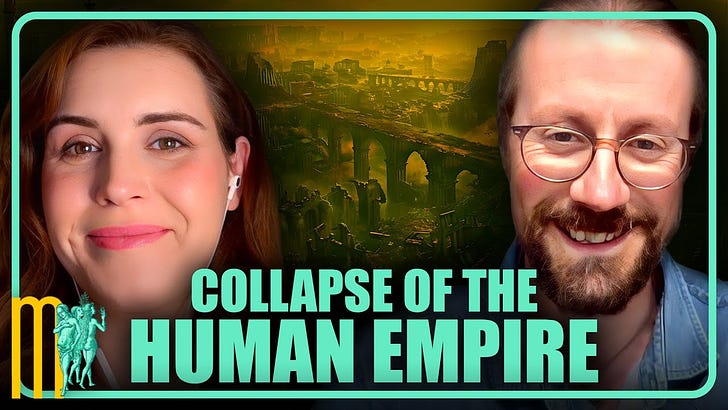Hello everyone. I am technically still on holiday, but that gives you all the more time and space to set your own terms of discussion here, in our regular monthly salon. This is the Abbey’s regular space for readers to open and steer the conversation on any subject they’d like to. I encourage anyone to dive in - please don’t be shy, especially if you have never commented before.
While I’m here, I’m flagging up a recent podcast conversation I had with Louise Perry, author of The Case Against the Sexual Revolution, and the host of Maiden Mother Matriarch here on Substack. Louise is a really smart and interesting thinker, and I enjoyed the conversation a lot. I have been wondering which essay of mine would be best to accompany it - there are quite a few. I think I would settle on Watch The Great Fall, from February last year. It seems appropriate to so many things that are happening right now.
In other news, I have two forthcoming speaking events in the USA in October to flag up: Against Christian Civilisation, the 2024 Erasmus Lecture in New York City; and The Machine in the Garden, a talk about Christianity and nature, in Buffalo, NY.
I’ll be back in action here on 25th August. Future writing will include the conclusion of my Fifty Holy Wells series, as well as the next in my Lives of the Wild Saints, featuring St Modomnoc of Ossory, patron saint of bees. I also have several essays in the pipeline, including: the long-planned story of why I became an Orthodox Christian; an exploration of the spiritual void at the heart of Western culture and where it is leading us; and, inspired by my conversation with Louise and the recent carnage in the streets, an essay on the deculturisation of England and how the country might recover its soul.
If you’d like to support me in this work - and join in the conversation here - please do think about a paid subscription, if you can manage it. In the meantime, over to you.





Been reading Surprised by Joy. Lewis says at one point that he’s often at cross-purposes with the world because he is a “converted pagan living among apostate Puritans.” Man that’s a good line.
A glorious Feast of the Dormition of Our Most Holy Lady, the Theotokos and Ever-Virgin Mary to all here at the salon! Continually pray for us O Mother of Life!